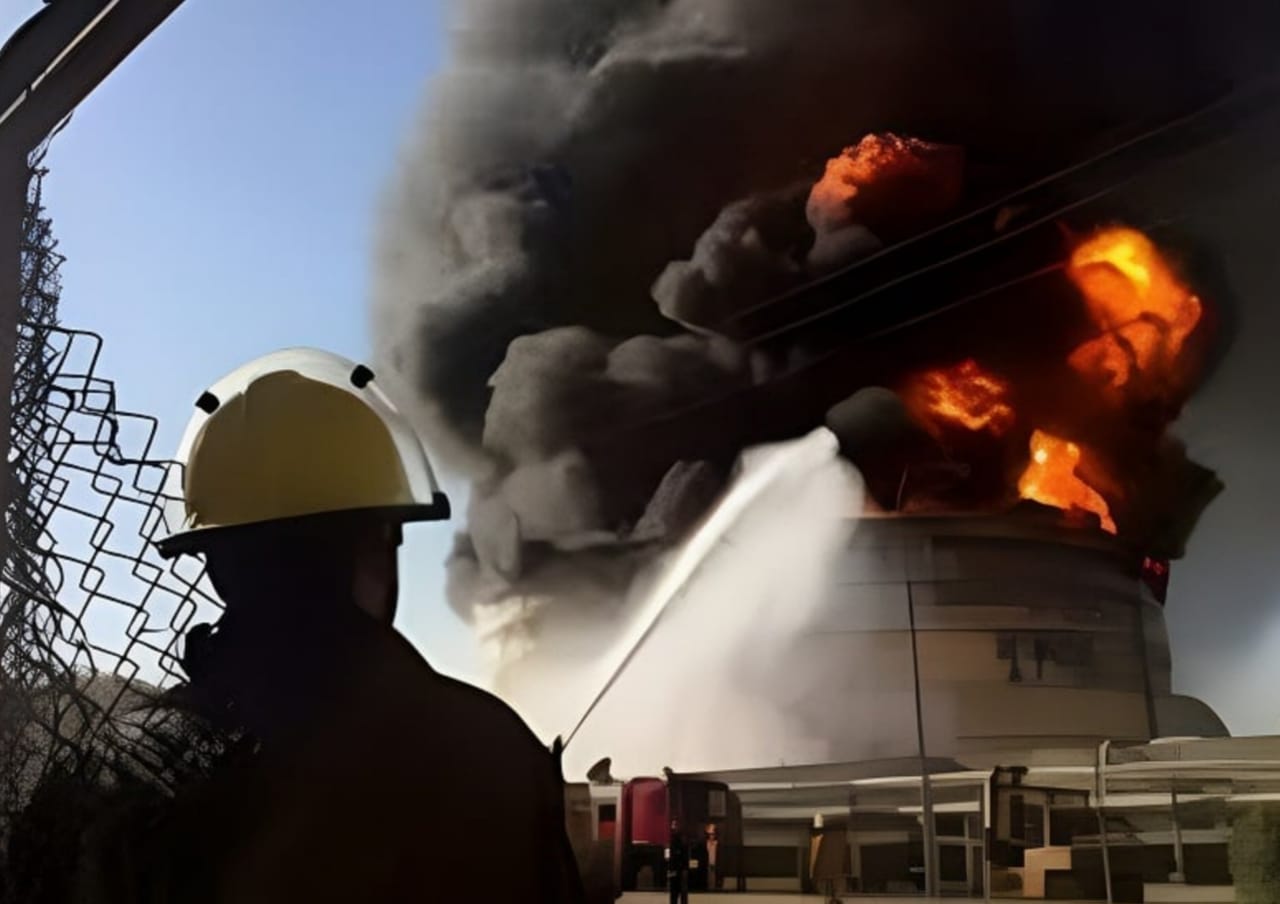A deadly fire tore through a unit of Iran’s largest and oldest oil refinery in the southwestern city of Abadan on Saturday, July 19, leaving one worker dead and several injured, state media reported. The blaze, reportedly triggered by a leaky pump in a section under maintenance, raised fresh concerns about industrial safety and infrastructure vulnerabilities in the country’s crucial energy sector.
According to the official IRNA news agency, the fire erupted in the early hours of Saturday and was brought under control within two hours. Emergency response teams were able to contain the flames before they spread to other parts of the massive facility. Despite the tragic loss of life, authorities have confirmed that the refinery's operations remain unaffected.
Abadan Oil Refinery, located roughly 670 kilometres southwest of Tehran, has been a pillar of Iran’s oil economy since it began operations in 1912 during the Qajar dynasty. It currently refines more than 5.2 million barrels of oil per day and accounts for approximately 25% of Iran’s total fuel production. The site holds historic and strategic significance as one of the oldest petrochemical centres in the Middle East.
Deputy Parliament Speaker Ali Nikzad confirmed the fatality and noted that several others sustained injuries during the incident. The extent of those injuries has not been officially disclosed, but some local media outlets reported that a few workers suffered burns and were treated at nearby hospitals.
The fire adds to a recent spate of industrial accidents across Iran. Over the past week alone, multiple fires have been recorded at both residential and commercial sites, many of them linked to gas leaks and outdated electrical systems. While no immediate evidence of sabotage has been found in the Abadan incident, the frequency of such occurrences is once again pointing toward long-standing safety gaps in Iran’s infrastructure.
Iran has been facing persistent challenges in maintaining and upgrading its industrial facilities. Years of economic sanctions imposed by Western countries have severely restricted the country’s access to modern equipment, safety technologies, and foreign investment. Oil exports remain limited, and funds available for domestic maintenance are often stretched thin.
Environmental concerns were also briefly raised, as the fire released dense plumes of smoke that were visible for kilometres. Local authorities assured residents that there was no lasting environmental damage and that air quality levels remained within safe limits following the extinguishing of the fire.
Experts stress the need for urgent reforms to prevent similar incidents in the future. "This tragedy should be viewed as a wake-up call," said an anonymous oil sector analyst in Tehran. "The Abadan refinery is not just a relic of the past; it's a vital national asset. Without proper maintenance and investment, even the strongest systems are prone to failure."
As investigations into the cause of the malfunction continue, the government is expected to conduct a thorough review of safety protocols at all major refinery sites. But for many Iranians, the pain of another preventable workplace accident lingers and calls for more than just answers.
